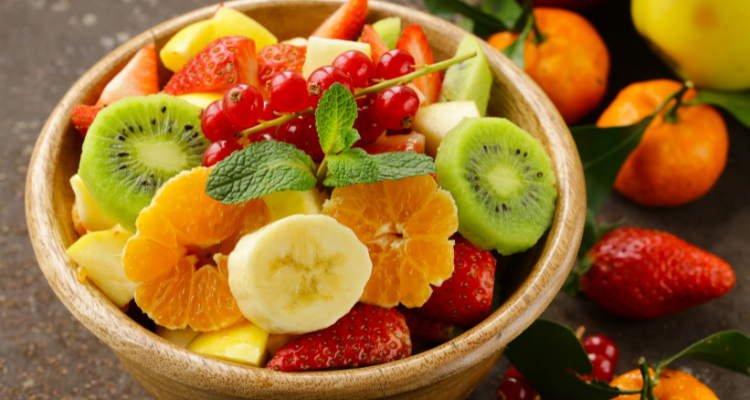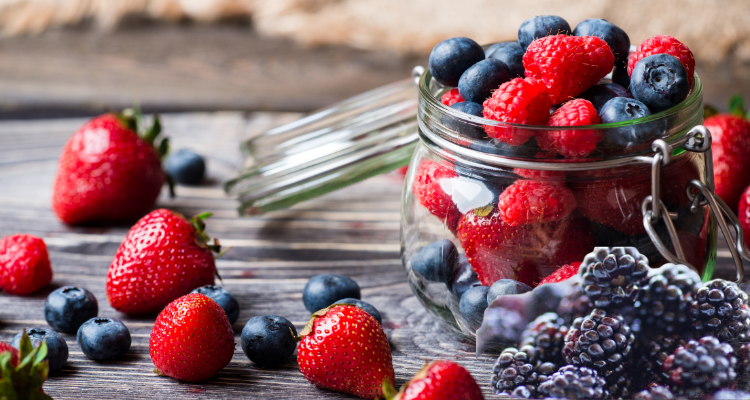"The Pros and Cons of Weight Loss vs Fruits"
When it comes to weight loss Vs fruits, it is hard to choose which fruits are better to eat and which to avoid. Here is a list of some fruits to avoid and some to consume.

When it comes to weight loss, some fruits may not be the best choice. While most fruits are generally healthy and can be included as part of a balanced diet, some high-calorie fruits may not be the best option for someone trying to lose weight. Here are 7 fruits to avoid or limit when on a weight loss diet:
1. Bananas: They can be high in calories, especially if you’re adding honey or other sweeteners. A medium-sized banana has about 105 calories. The natural sugars in bananas may also cause blood sugar levels to spike and crash, making it difficult to control cravings. To avoid this issue, try eating smaller portions or opting for a lower-calorie fruit instead.
2. Mango: A medium-sized mango has around 138 calories. While mangoes are rich in vitamins and minerals, they can also be high in sugar and calories. It’s best to enjoy them in moderation as part of a balanced diet. If you do choose to include mango in your diet, try to choose a smaller portion size or opt for a lower-calorie fruit instead.
3. Pineapple: A cup of pineapple chunks has about 82 calories. While the pineapple is a good source of vitamin C and manganese, it can also be high in sugar and calories. To avoid consuming too many calories from pineapple, try to limit your intake or opt for a smaller portion size.
4. Grapes: While they are relatively low in calories, grapes can be high in natural sugars and should be consumed in moderation. A medium-sized bunch of grapes has about 104 calories. To avoid consuming too many calories from grapes, try to limit your intake or opt for a lower-calorie fruit instead.
5. Apple juice: While apples themselves are healthy, apple juice is high in sugar and calories. It’s best to stick to whole fruits and consume them as part of a meal rather than as a standalone snack. A medium-sized glass of apple juice has about 140 calories and 36 grams of sugar
6. Coconut water: Although it is a low-calorie option, coconut water can be high in natural sugars and should be consumed in moderation. A cup of coconut water has about 45 calories. To avoid consuming too many calories from coconut water, try to limit your intake or opt for a lower-calorie beverage instead.
7. Fruit smoothies: Smoothies can be high in calories and sugar, especially if you’re adding juice or other sweeteners. It’s best to stick to whole fruits and consume them as part of a meal rather than as a standalone snack. A medium-sized fruit smoothie can have up to 200-300 calories and 40-50 grams of sugar, depending on the ingredients used.
It’s important to remember that fruits are an important part of a healthy diet and should be included in moderation as part of a balanced approach to weight loss. Instead of avoiding these fruits altogether, try to practice mindful eating by paying attention to portion sizes and opting for lower-calorie options when possible.

Berries are a good source of vitamins and minerals, plus they are low in calories and suga
Here are 7 fruits and berries good to have when it comes to a weight loss approach.
1. Berries: Berries such as strawberries, raspberries, and blueberries are low in calories and high in antioxidants, making them a nutritious addition to a healthy diet. A cup of berries has about 60-80 calories and 5-7 grams of sugar, but the exact amount can vary depending on the type and serving size.
2. Apples: Apples are a good source of fiber, containing both soluble and insoluble fiber that can help with digestion and satiety. A medium-sized apple has about 95 calories and 19 grams of sugar, making it a relatively low-calorie snack option, especially when compared to other fruits.
3. Oranges: Oranges are a good source of vitamin C, an essential nutrient for immune function and collagen production. A medium-sized orange has about 62 calories and 9 grams of sugar, but oranges can be high in pectin, a type of soluble fiber that may help lower cholesterol levels.
4. Pears: Pears are a good source of fiber, containing both soluble and insoluble fiber that can help with digestion and satiety. A medium-sized pear has about 57 calories and 13 grams of sugar, making it a relatively low-calorie snack option, especially when compared to other fruits like apples.
5. Peaches: Peaches are a good source of vitamin C, an essential nutrient for immune function and collagen production. A medium-sized peach has about 40 calories and 9 grams of sugar, but peaches can be high in antioxidants and other phytonutrients that may have anti-inflammatory effects.
6. Melons: Melons such as watermelon, cantaloupe, and honeydew are low in calories and high in water content, making them a refreshing and hydrating snack option. A cup of melon has about 30-50 calories and 5-8 grams of sugar, but the exact amount can vary depending on the type and serving size.
7. Plums: Plums are a good source of vitamins and minerals, including potassium and manganese, that may help with blood pressure regulation and bone health. A medium-sized plum has about 30 calories and 6 grams of sugar, making it a relatively low-calorie snack option, especially when compared to other stone fruits like nectarines.
It’s important to remember that fruits are an important part of a healthy diet and should be included in moderation as part of a balanced approach to weight loss.
Instead of avoiding these fruits altogether, incorporating these fruits into your diet can help you meet your daily nutrient needs while also supporting weight loss efforts by providing a healthy, low-calorie option to satisfy cravings for something sweet
As always, try to practice mindful eating by paying attention to portion sizes and opting for lower-calorie options when possible.
Eating fruits while trying to lose weight can be a challenging balancing act.
On one hand, fruits are an essential part of a healthy diet. Fruits provide essential vitamins and minerals that our bodies need to function properly.
On the other hand, it’s important to monitor your calorie intake when trying to lose weight. Consuming too many fruits may lead to consuming excess calories.
Therefore, it’s recommended to incorporate a variety of fruits in moderation into your diet while trying to lose weight.
Menu
